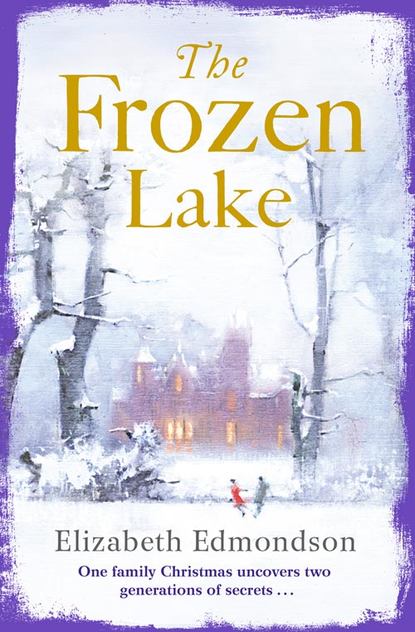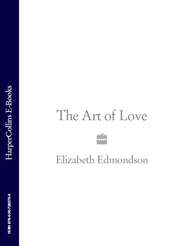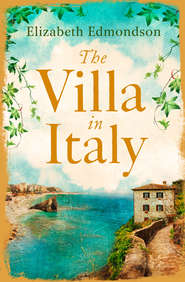По всем вопросам обращайтесь на: info@litportal.ru
(©) 2003-2024.
✖
The Frozen Lake: A gripping novel of family and wartime secrets
Настройки чтения
Размер шрифта
Высота строк
Поля
‘I am sorry,’ he said again. ‘May I take the bucket in for you?’
She clutched the bucket to her chest, and backed away. ‘No, no. It would be most unsuitable.’
Edwin didn’t give a fig about what was or wasn’t suitable. He took the bucket firmly from her and followed her down the basement steps to deposit it in the area. Then he went back up to the pavement, and, lighting a cigarette, took up a position by the railings.
He didn’t have long to wait before she came up the steps, dressed now in a shabby, dark coat and a nondescript hat. ‘Oh,’ she said, when she saw him. ‘Why are you still here?’
‘I’m waiting for you. Have you finished your work for now? Then I shall buy you a cup of coffee. No, don’t protest, it’s the least I can do after sending your bucket flying.’
He walked her quite a way, to a place he knew of near Harrods. A Hungarian pastry chef had opened a hugely successful tea room, where his exquisite cakes and pastries were bought and sampled by appreciative members of the upper classes.
She didn’t hang back at the door, despite her poor clothes, but lifted her chin and went in. The proprietor eyed her with momentary disapproval, then took in the well-cut, if casual, clothes of her companion and ushered them to a table.
Edwin ordered coffee and pastries. ‘I don’t have to ask a Viennese if she likes these,’ he said with a smile.
‘How do you know I come from Vienna?’
‘Your accent. I studied in Vienna for a while.’
‘You don’t have a Viennese accent.’
‘No, I learnt my German as a child, from a German governess.’
‘Do you always stare at people? Isn’t this rude, for an Englishman?’
He wasn’t at all abashed. ‘I’m a photographer. I always stare when I see something or someone I want to take photographs of.’
The light died out of her face, and her big dark eyes became wary. ‘Photographs?’
‘Not the kind you’re thinking of,’ he said quickly. ‘Nothing distasteful or dishonourable.’
That was what she was thinking, of course. You didn’t arrive as a penniless but attractive refugee to any country without certain suggestions being made to you. Had she chosen that route, she would never have had to scrub a step, and she wouldn’t be wearing these clothes. She said no more, but took a bite of her Marillenkuchen and with that delicious apricot mouthful, all her memories of Vienna, pushed so resolutely out of her mind, came flooding back. She smiled.
She couldn’t help it, and she couldn’t have dreamt of the effect it would have on Edwin, who sat transfixed, gazing at her with blank astonishment.
He had thought she had an interesting face. The arrangement of cheekbones and nose and mouth appealed to him, as an artist, not as a man. Now he was overwhelmed.
She didn’t want to meet him again, didn’t want to be photographed, wanted to be left alone. She didn’t notice him following her through dingy streets to a house in Bloomsbury. As she put her key in the lock of the front door, which badly needed a coat of paint, she looked around and up and down the street, as though she sensed his eyes upon her; he had ducked behind a parked van, and she didn’t see him.
He sauntered around the corner and went into a shop that announced itself as a newsagent and tobacconist. A small man with a moustache stood behind the counter, and he greeted Edwin in a voice that held a trace of a foreign accent. Edwin bought a paper and a packet of cigarettes.
There were no other customers in the shop, and it wasn’t hard to fall into conversation with the man. Edwin’s relaxed, unassertive ways encouraged people to talk to him, and in no time at all, he had the rundown on everyone in Cranmer Street, including the inhabitants of number sixteen. The owners of the house were an elderly couple, who let out rooms to add to a meagre pension. Their only lodgers at present were a young married couple. The man was English, his wife from Austria. Also staying there for some weeks now was the wife’s sister, recently arrived from Vienna.
‘A musician,’ the little man said, his eyes gleaming with pleasure. ‘She plays the piano. For hours. Bach, mostly, and Scarlatti. Beautiful, beautiful.’ Then the eyes became watchful. ‘You are from the authorities, perhaps?’
‘Good heavens, no,’ Edwin said, taken aback. ‘Do I look like a policeman?’
‘It is not only the police, but there are Home Office officials, who come and ask unpleasant questions in areas like this. There are a lot of foreigners here. But Mrs Jenkins, the musician’s sister, is married to an Englishman, she has a British passport, I have seen it, I know what it looks like. I was once a German, but now I, too, have a British passport.’
‘Does the sister have a passport?’
‘Only an Austrian one, if that. She has come as a refugee, her brother-in-law arranged it. It wasn’t easy, because he’s a writer, and has little money. However, Mrs Jenkins works, and earns some money, and so they managed it. Mrs Jenkins was very worried about her sister, for they are Jews, like me. It isn’t safe to be Jewish these days.’
‘No, I suppose not,’ Edwin said inadequately. ‘I’m aware that Mrs Jenkins’s sister – I don’t recall her name …?’ He looked expectantly at the newsagent.
‘Weiss. Lidia Weiss.’
‘Miss Weiss has a cleaning job. Surely, if she is a musician she shouldn’t be scrubbing floors?’
The man shook his head, making clucking noses. ‘No, no, of course not. It is terrible for her hands. Musicians have to be careful of their hands, and the water, and the cold, it isn’t good for bones and muscles. Only what work is there for a musician, newly arrived in this country? They are two a penny. I myself know a cellist of international reputation who stays alive by washing up at a restaurant. A violinist, a wonderful artist, is a lavatory attendant – and the stories he tells about what goes on in such a place, it makes your hair stand on end, the English are a strange people. A friend of mine who is a horn player is more fortunate, he is a big, strong fellow, and he is employed by a nightclub. On the door.’ The little man spread his hands in a despairing gesture. ‘Lidia Weiss is lucky, she is well-educated, she speaks good English. If she didn’t, it would be difficult for her even to get a cleaning job.’
‘I see,’ Edwin said.
It took him two days to scrape an acquaintance with Richard Jenkins, a thin, likeable young man engaged in writing a long novel set in mediaeval Wales. This work was to make his fortune; Edwin doubted it, and when he went back with Richard to take potluck at the evening meal, he saw that Lidia doubted it too, but was too kind to say so. He had handed the food he had thoughtfully brought with him to a relieved Anna Jenkins, who had been wondering how she could make an already watery tomato soup and a tin of sardines feed four people, and then turned around to be introduced to Lidia. She looked at him as though she had seen a ghost.
Although they hadn’t met before, Richard moved in much the same London circle as Edwin, and they had friends in common among the Bohemian group of writers, artists and musicians endeavouring to live by their various talents. By the end of the evening, Lidia seemed to have shed her mistrust of Edwin. She sat down at the battered old piano after supper and played for them. Edwin didn’t take his eyes off her, his gaze moving from her rapt face to her reddened, swollen hands.
She visited him in the rooms he kept in London, one of which was rigged up as a small studio. The first time she came, she brought her sister Anna with her. Then, finally, after further tea-time outings to sample Viennese pastries, a recital at the Queen’s Hall, ‘A friend asked me to use the tickets, such a shame to waste them,’ he lied, and an evening at the cinema, she came to his rooms alone.
She refused to marry him.
‘Why, why?’ he would ask her in despair as they lay side by side on his narrow bed. ‘What’s wrong with me? I’m so much in love with you, don’t you feel anything for me?’
‘Nothing is wrong with you, but everything is wrong with me. I am foreign, and Jewish, and Richard tells me that you come from an important, rich family. They would hate me. Then, I’m older than you, and men should be older than the women they marry.’
‘Four years! It’s hardly a generation. One of my aunts is married to a man fifteen years her junior, and they are very happy.’
‘Even so. And besides …’ It was hard to tell him that she slept with him for the release and comfort it gave her, not because she was in love with him. She craved human warmth and company, desperate to drown her grief at her parents’ death in a railway accident, to forget for a short while the loss of her first lover, a Berliner who had vanished into one of the KZ camps for some minor act of disobedience to the State, and had died there in mysterious circumstances. After making love she wept on Edwin’s shoulder, for the people who were gone, for the country she had loved, for the Jews who were left.
Edwin had never in his life been exposed to such raw emotion, he wanted to detach himself from it, yet ended by finding himself even more deeply in love with his brown-haired Viennese refugee.
She was a harpsichordist, not a pianist, he learnt. Which was not a good thing to be, because if good pianos were hard to come by, harpsichords of any kind were impossible. Edwin pleaded with her to give up her cleaning job, to come and live with him if she wouldn’t marry him, but she refused, and twice a week went to classes, paid for out of her slender earnings, to learn shorthand and typing.
Edwin had to return to the north. He begged her to come with him. His studio there wasn’t in his parents’ house, he told her, but on the ground floor of a house in the local town. ‘I own the whole house, there are bedrooms, a bathroom, a kitchen. It’s a small town, but friendly. The air is good, there are hills,’ he added helplessly.
She shook her head, and got out of bed to dress in her worn clothes and go off to attend to the steps of the Photographic Institute. Edwin went around to Cranmer Street, and railed at her sister, Anna, who looked at him with pity in her eyes.
‘It will be better for her when she has another job. It will be better for her when she can work indoors, and use her mind, and not have her hands in water all day. Then she can play properly, and remember what she is.’
Like you, thought Edwin, although he was too kind to say so. Like Anna, who had a degree in chemistry, and was grateful for the job of laboratory assistant at a girls’ school.
‘Please persuade her. None of this is because I feel sorry for her, you do understand that?’
‘I know. It is because you love her. Sadly, love comes at no one’s bidding, and so …’ She shrugged.
The scrubbing got no easier, when Edwin had gone, and the piano playing became more and more painful and difficult. Edwin wrote to her every day, passionate letters, and sent her photographs, of fells and lakes and ruined chapels.
‘What an artist!’ Richard said, when he saw them.









